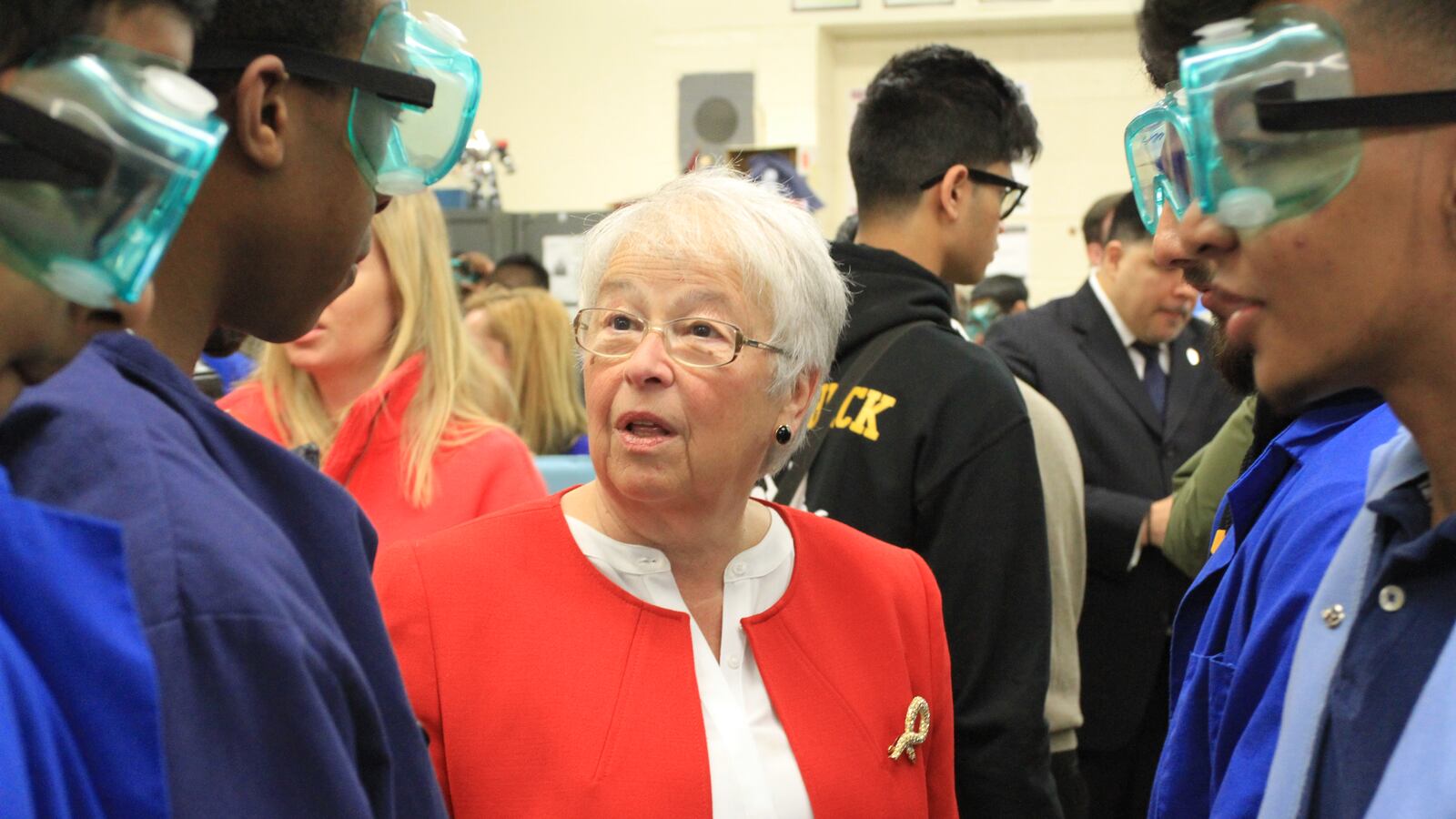For the last week, the country has been gripped by conversations about race and violence that were renewed by multiple high-profile shootings. Many of those conversations have happened in and around schools.
Now, New York City Schools Chancellor Carmen Fariña is formally encouraging local educators to wade in — even if it’s hard.
“I strongly believe that as New York City educators and parents, we have a moral obligation to address the difficult questions about race, violence, and guns, and to engage students in the critical work of healing our country,” Fariña wrote in a public message Thursday. “We must not avoid these tough conversations—they are necessary if we hope to build a just society for all.”
Fariña’s note reveals that the city could grow a new program to connect police officers with the schools in their precinct. It also offers resources for educators and parents grappling with how to talk to children about difficult topics — something that many teachers have already shared their own advice for doing.
“Create a safe space for students to talk about their concerns and ask questions,” she wrote. “Listen to their fears, share as much information as children are able to handle, and answer their questions with honesty, sensitivity, and empathy.”
Fariña’s full message is below.
Dear Colleagues and Families, Last week’s killings of two black men by police in Louisiana and Minnesota, and the tragic shooting deaths of five police officers in Dallas, have shaken the nation. We are all still hurting over these and other recent heinous acts. As painful as these events are, I strongly believe that as New York City educators and parents, we have a moral obligation to address the difficult questions about race, violence, and guns, and to engage students in the critical work of healing our country. We must not avoid these tough conversations—they are necessary if we hope to build a just society for all. I am writing to ask you to partner with us on this important work. I encourage you to come together in our offices, classrooms, teacher prep rooms, principals’ offices, cafeterias, playgrounds, and auditoriums—and start a conversation. Discuss the recent events, and help each other process the anger that is gripping our communities. Listen to and support one another. The goal should be to open up lines of communication, build bridges, and foster respect. Educators and parents should also raise these issues with children, taking care to have thoughtful conversations. Create a safe space for students to talk about their concerns and ask questions. Listen to their fears, share as much information as children are able to handle, and answer their questions with honesty, sensitivity, and empathy. If children are having a difficult time, limiting exposure to television and the news may reduce their stress. Parents should try to keep routines as normal as possible; children flourish and feel most secure with predictability. Reassure children that although there are people who do bad things, the world is a good place, and that their families will do everything possible to keep their children safe. There are helpful resources for talking to children about violence on our Crisis Support webpage. However, as educators we must go beyond talking. To support informed action, the Department of Education will implement a new social studies curriculum, which includes robust lessons integrating themes of tolerance, civil rights, and equity. Perspectives for a Diverse America, a literacy-based curriculum developed by the Southern Poverty Law Center’s Teaching Tolerance project, is another useful resource. Most importantly, I ask that you share any ideas that support uniting our communities. For our teachers: Do you have a lesson plan that sensitively addresses these issues that your colleagues across the City could benefit from seeing? For our principals: Has your school developed a meaningful relationship with your local police precinct? Our recent Team Up! Tuesday event, which hosted police officers at more than 300 elementary schools to cement bonds, was a tremendous success with students. As we consider expanding this program to other grades, I would appreciate hearing what events you think would be most meaningful in bringing our communities together. Please also let me know about other programs or partnerships that are fostering teamwork and inclusion. Thank you for beginning these important conversations with our students, families, teachers, and school staff. Only by working together can we create safe, equitable, vibrant spaces in which our children can learn and thrive.


